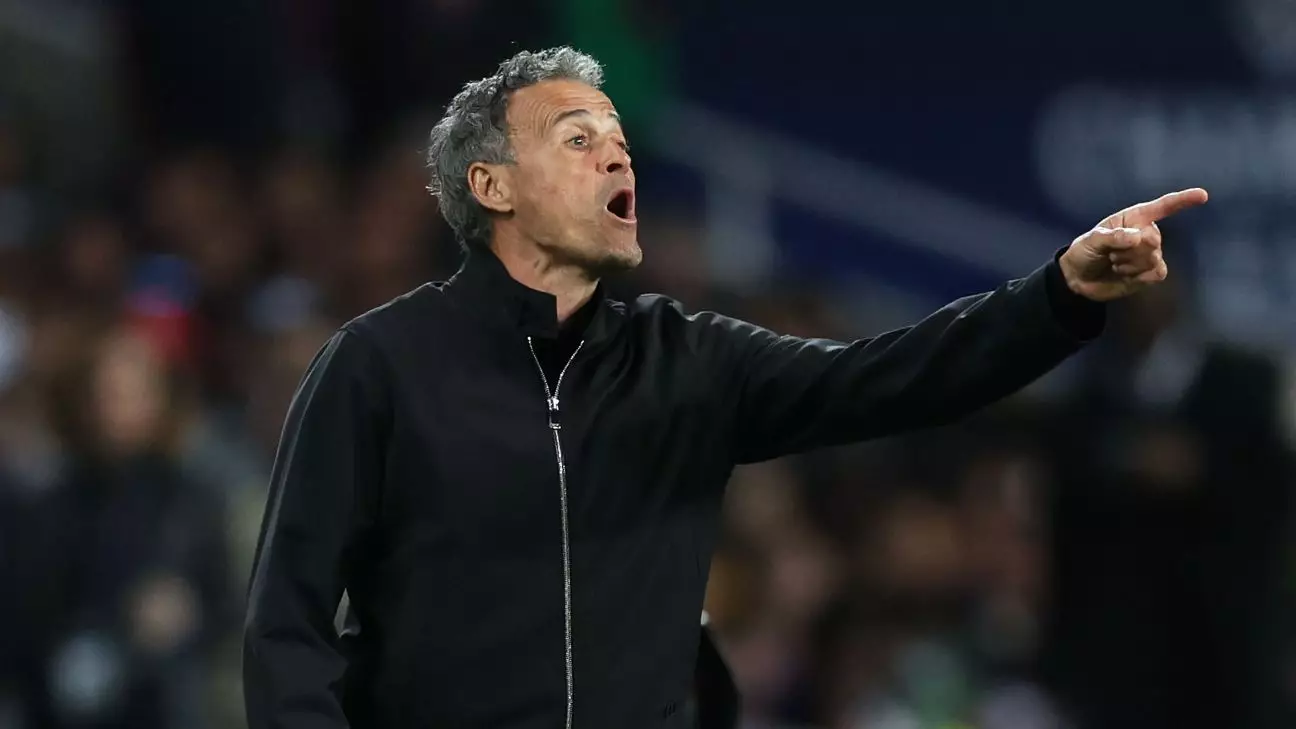In the realm of European football, the narratives surrounding coaches and their philosophies are often as absorbing as the matches themselves. Recently, Paris Saint-Germain (PSG) head coach Luis Enrique shed light on the evolving dynamics at FC Barcelona, particularly under the leadership of Xavi Hernández. In a revealing documentary titled, “You have no f—ing idea,” Enrique, a former player and manager of Barcelona, offers a critical lens through which to view Xavi’s tactical approach compared to John’s own philosophy. This analysis not only highlights the tactical discussions within the footballing community but also unveils the intricate emotional ties that exist when former teammates find themselves on opposing sides.
Luis Enrique’s contentious remarks, labeling Xavi’s Barcelona as engaging in “long ball football like Eibar,” raise eyebrows by contrasting the traditional image of Barça—often linked to intricate play and positional football. During their heated Champions League quarterfinals, Enrique’s critique of the first leg, where PSG lost 3-2 in Paris, mirrors a broader concern in the footballing world about how elite teams evolve in terms of strategy.
Luis Enrique’s assertion that Xavi’s side lacked dominance through possession is indicative of a shift in tactical prioritization at Barcelona. Historically, the Catalan club has prided itself on its renowned tiki-taka style, with fluid passing and movement that left opponents scrambling. However, Enrique claims that Xavi’s tactical evolution leans towards more pragmatic play, utilizing long passes and a less prevalent emphasis on ball control—the so-called ‘style of Eibar.’ This suggests a transformative period in Spanish football wherein tactical flexibility can supersede adherence to traditional styles.
As PSG prepared to face Barcelona, Enrique’s comments emphasized his belief that flashy possession does not always equate to positional superiority. Citing goalkeeper Marc-André ter Stegen’s long-pass record as evidence, Luis Enrique painted a picture of a side more inclined to counterattacking rather than dictating the pace of the game. Such observations spur reflections on how tactical frameworks evolve, particularly within storied clubs like Barcelona.
Another notable aspect portrayed in Enrique’s documentary is his relationship with PSG’s star forward, Kylian Mbappé. Adding a personal dimension to the tactical narrative, Enrique emphasizes the importance of Mbappé’s leadership within the team. His frank discussions with the young striker—encouraging him to adopt a more aggressive pressing style—speak to the dual role of a coach in nurturing talent while also demanding accountability. “You have to be a leader,” he implores. His insistence that Mbappé lead by example illustrates the challenge of harnessing individual brilliance for collective benefit.
Moreover, this interplay of roles—where a manager must enable and manage superstar egos—complicates the landscape of modern football. The documentary’s insights serve to remind us that while tactical frameworks are of utmost importance, the emotional and social aspects of management cannot be overlooked. The harsh reality of competitive sport often pits personal ambitions against the greater goal of team success.
The documentary ultimately seeks to encapsulate Luis Enrique’s time at PSG and his enduring bond with FC Barcelona, a relationship fraught with respect, rivalry, and nostalgia. Luis Enrique’s reflections on the Champions League encounters as “horrible” echo the emotional burden faced when former allegiances confront the demands of the present. As he navigates through victories and defeats, his experience emphasizes the complexities of modern coaching—where each decision, match, and interaction comes laden with history.
Furthermore, the revelations regarding discussions about a return to Barcelona enhance our understanding of how clubs assess managerial continuity. Enrique’s query about Xavi’s precarious position reflects a broader dilemma in professional sports, illustrating a constant pressure to achieve immediate success amidst fluctuating philosophies.
Luis Enrique’s critique of Xavi’s Barcelona, coupled with reflective moments shared with Mbappé and his introspection regarding managerial identity, serve to enrich our appreciation of the tactical evolution in football. The emotional ties of rivalry and affection continue to shape the narratives that define not only the journey of individual players but the enduring legacy of iconic football clubs like Barcelona and PSG. The future for both continues to brim with potential, underscoring the constant metamorphosis inherent in this beautiful game.

